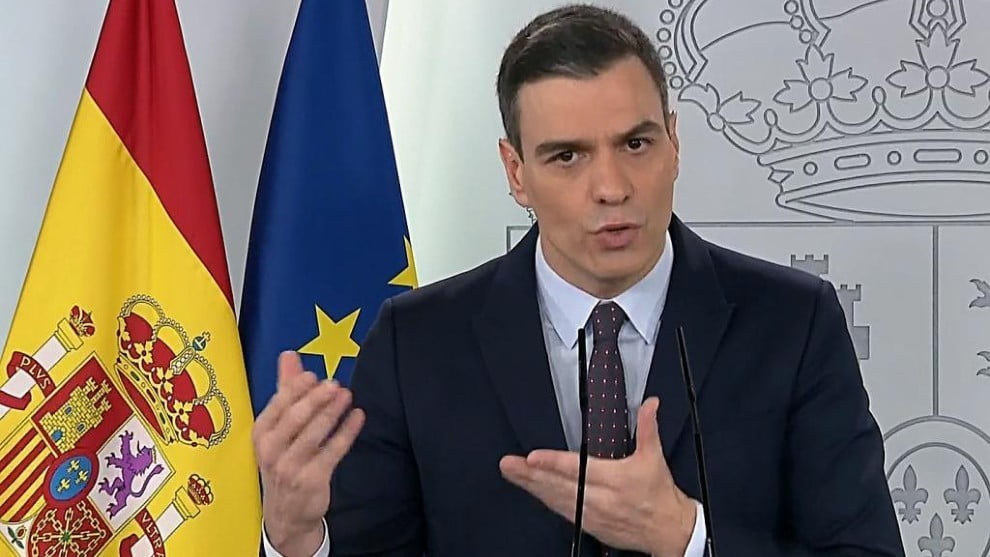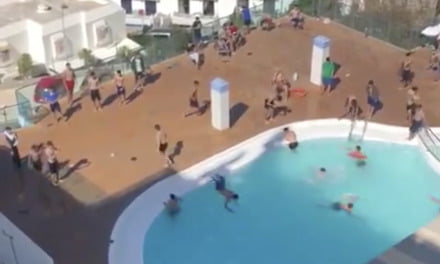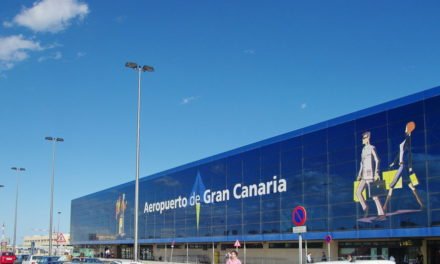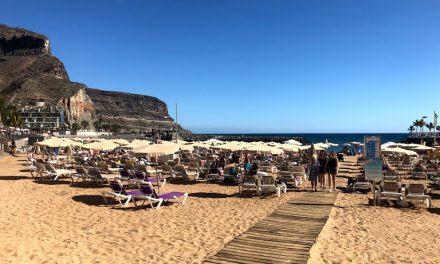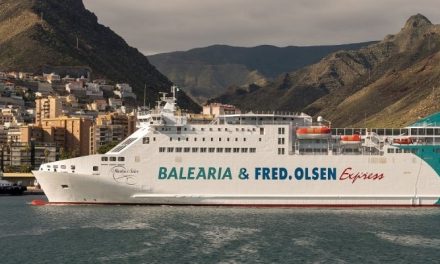The Spanish Government has, as of this Saturday May 23, begun the daunting task of trying to set out how international tourists can start return to the country in time for this 2020 summer season, hoping to save, at least in part, the vast expected losses caused by the corona virus shut down.
The Canary Islands government has this week welcomed statements of optimism that will allow for flight companies and tour operators to really begin to plan for a re-opening of our destinations, Gran Canaria and the rest of the archipelago have seen some of the lowest Covid-19 infection, transmission and fatality rates in all Europe. However the regional tourism ministry have warned that health security for the resident population, and indeed the security of travellers, is of the highest importance, pointing out that just because you open the doors it does not mean a full return of the industry all in one go. It has been emphasised that the archipelago is not as seasonal as the rest of Spain, with an all-year-round offer as Europe’s only sub-tropical destination. A large proportion of our tourism is focused toward the Nordic market, whose main winter season extends from October to April. It can be expected that caution and prudence will mean a more measured approach will be promoted as the islands attempt to get back on their feet safely, and secure their lead as a safe destination. That said, there could be some great early bird deals available from July to help bolster the largest markets of origin, the British and Germans, in an attempt to lure as many as possible who will have missed out on the usual April, May and June availability. It remains to be seen, but there is a possibility that July and August will be busier than ever. However don’t bank on it just yet. Many foreign nationals plan to stay in their country of origin at least until September. Some have said until next year.
The tourism sector has been demanding a specific opening date that allows foreign visitors to organise holidays to Spain, decrying Prime Minister Pedro Sanchez for being practically the only European head of government to have not yet released a statement on the issue, this week, to reassure and attract tourists back to a country that thrives on the basis of 80 million annual travellers. On the contrary, say the detractors of Sanchez, Spain has so far been noted for adopting some of the harshest measures, such as enforced quarantine for anyone entering the country, discouraging potential tourists from even proposing a visit to Spain.
In particular hoteliers and excursion operators have been particularly scathing towards anyone who might suggest a more measured and watchful return to any sort of business-as-usual, despite a global halt to the world’s economies in the face of a world wide pandemic that has infected more than 5 million people and killed more than 1/3 of a million around the world, more than 28,000 of them in Spain.
 Today Prime Minister, Pedro Sánchez, has at last voiced a proposed date for a return for international tourists: July.
Today Prime Minister, Pedro Sánchez, has at last voiced a proposed date for a return for international tourists: July.
“There will be a tourist season this year,” said Sanchez from his official residence the Moncloa Palace in Madrid, and directly addressed all foreigners who may be thinking about where to spend their holidays this summer: “Spain is waiting for you this July under safe conditions.”
Sánchez appeared solemn in tone when announcing: “The time has come… We intend to guarantee the reactivation of national tourism… this summer season” and “foreign tourists can now also plan their vacations to our country”.
The Prime Minister emphatically invited “all tourist establishments, bars and restaurants, beach and inland destinations, to prepare, as of now, to resume their activities within the coming few days” and “to be ready to welcome Spaniards who want to enjoy vacations to any of the formidable destinations that our geography offers.”
Sánchez’s message welcomed both travellers from abroad, guaranteeing the opening of a sector that welcomes more than 80 million visitors each year, and domestic tourists, encouraging Spaniards to holiday within our borders: “We must take advantage of the great benefits that this country has in [terms of] tourism, this being a good year to get to know our great country,” he said.
 In his message, the Spanish Prime Minister assured European partners that Spain will guarantee the safety of visitors, but will also be watchful, so that opening the doors does not mean new cases of coronavirus arriving in Spain: “Spain needs tourism and security at origin and destination, with which we will guarantee that tourists do not run any risks or bring risk to our country, ” he said.
In his message, the Spanish Prime Minister assured European partners that Spain will guarantee the safety of visitors, but will also be watchful, so that opening the doors does not mean new cases of coronavirus arriving in Spain: “Spain needs tourism and security at origin and destination, with which we will guarantee that tourists do not run any risks or bring risk to our country, ” he said.
According to Sánchez, the return of tourism will be undertaken based on two fundamental criteria: that of safety and that of environmental sustainability. He has not given much detail more in this regard. Over the coming days, the Prime Minister has specified, that Reyes Maroto, the Minister for Industry, Commerce and Tourism, and José Luis Ábalos, Minister of Transport, Mobility and the Urban Agenda, will clarify all the relevant issues regarding the hows, whys and wherefores for entry of foreign tourists, in collaboration with Spain’s 17 regional autonomous communities (and the two smaller autonomous cities).
TOURISM INDUSTRY APPLAUDS ANNOUNCEMENT
Executive Vice President of Exceltur, the Alliance for Excellency in Tourism, José Luis Zoreda, today thanked the Spainish government for offering a “very powerful welcome message” to foreign tourists.
Speaking to news agency Efe after Sánchez’s press conference, Exceltur’s president applauded Sánchez’s “very powerful message” aimed at foreigners, who could have been “disappointed” following the previous big announcement that they would have to quarantine for two weeks if they visited Spain during the State of Emergency, saying that it was a “slap” to tourism that has now been compensated with this welcome for July, Zoreda said.
For Zoreda, “the ideal” would be for the Schengen area to be recovered as soon as possible, but, failing that, he warned that Spain must rapidly reach bilateral agreements to allow foreign tourists to arrive this summer” at least with the main source markets: UK, France, Germany, Benelux and Scandinavia.”
Ten days of official mourning from Tuesday
Sánchez has also announced that next Tuesday the Council of Ministers will decree ten days of official mourning for the more than 28,000 victims of COVID-19 in Spain. The flags will fly at half-mast. The Prime Minister has already announced that he would decree mourning once the majority of Spain is in a more advanced phase of de-escalation. Starting Monday, the entire territory, including the worst hit, Madrid and Barcelona, will be in de-escalation Phase 1 or higher, with Gran Canaria and The Canary Islands in Phase 2. In addition, the Government’s intention is to carry out a state tribute over the coming weeks, which will be chaired by the head of state, King Felipe. The event will take place when all of Spain has entered what is being termed as the “new normal”, that is the post-covid19 normality, not before July.

